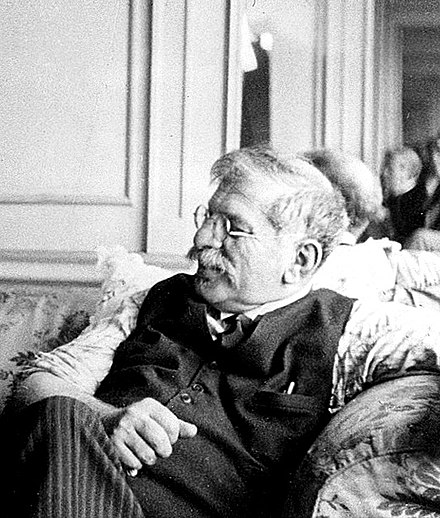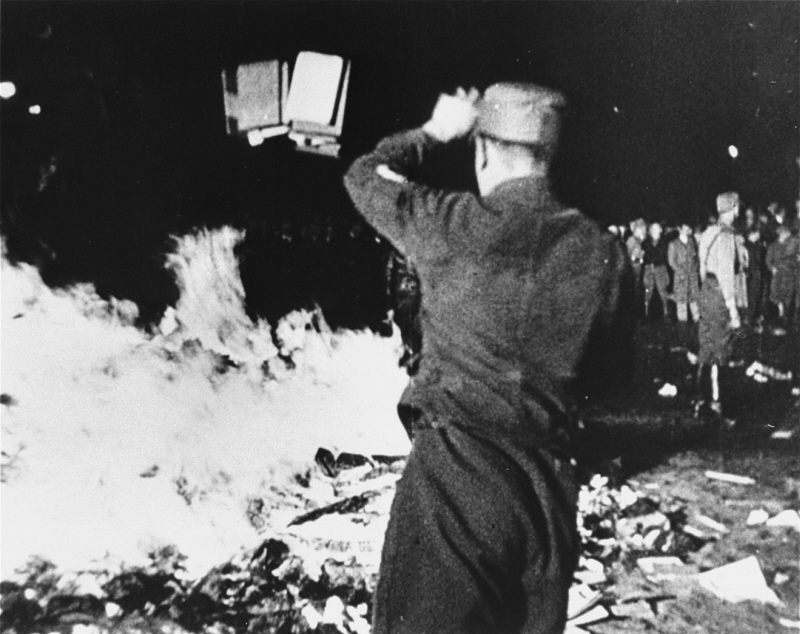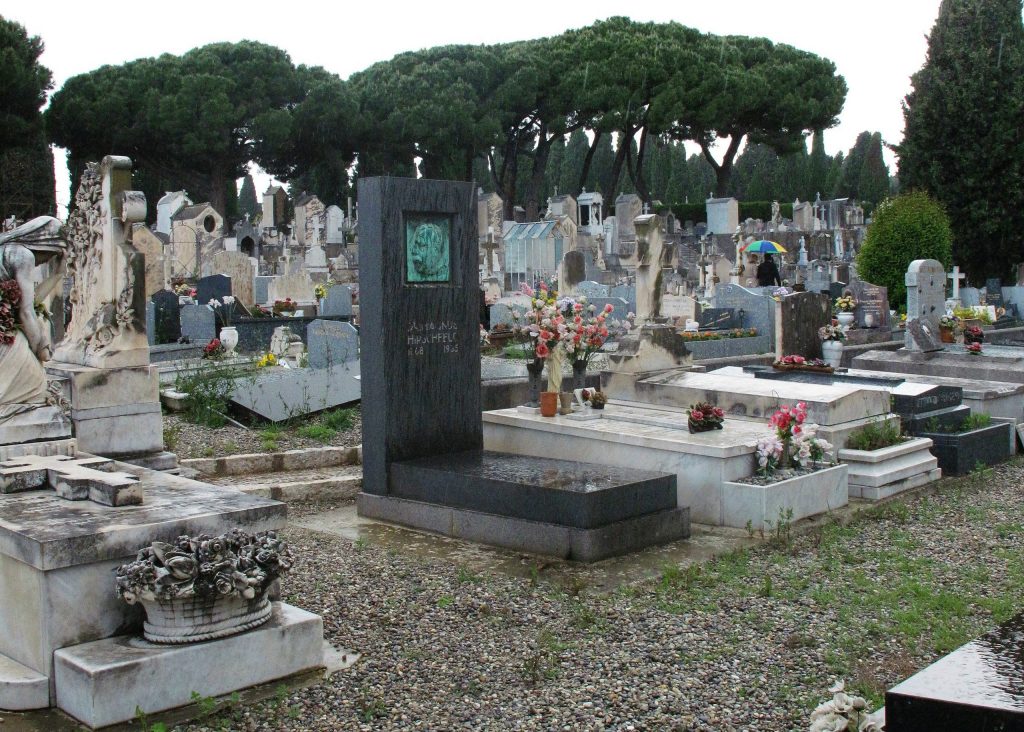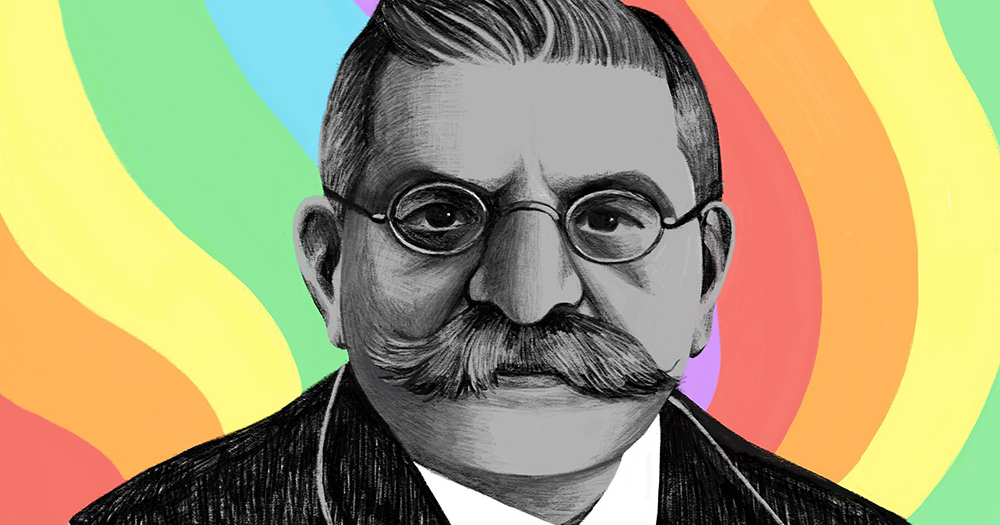Nowadays we frequently see and hear about LGBT+ people in the media. Society is becoming more accepting of LGBT+ people allowing us to come out and live as our true selves. In recent years, Ireland has made major advances in LGBT+ rights and recognition. Yet you hear people say being LGBT+ is a trend. You hear people say it’s something new. You hear people invalidate your identity because our history is hidden. I can almost understand why people might think being LGBT+ is some sort of trend. Think Stonewall, think Dublin’s first pride in 1974 or think marriage equality. These are all relatively recent developments. But what I can’t understand is how they think we came down in the last shower.

Queer people have existed throughout history. But only now are some societies improving LGBT+ rights. Which means only now can we come out and be visible. And only now can queer knowledge be celebrated and preserved. We must preserve and protect our queer history for future generations as, without it, our narrative can be rewritten or erased. The rise of the Institute of Sexual Science during the Weimar Republic and its destruction with the rise of Nazism demonstrates the importance and precarious position of queer history. In the early twentieth century, those considered outside of the sexual or gender norm was viewed as abhorrent. Any deviation from these rigid norms were crimes, vices, or sins. However, in 1920s Germany a self-described “Jewish, gay and socialist sexologist”, Magnus Hirschfeld founded what could be considered to be the first Gay Rights Organisation, the Institut für Sexualwissenschaft, or Institute of Sexual Science.
Hirschfeld introduced a new approach to studying sexuality and gender. When he failed to find conclusive evidence that hormones determined human sexuality, he introduced a then-unorthodox method of learning from the LGBT+ ‘patients’ who were enlisted into his care for research. At the Institute Hirschfeld focused on therapy, counselling, sex education and sexual reform. He was an advocate for treating sexual anomalies medically and with reason. In 1919 he bought a large building in Berlin and established there an Institute for Sexual Science. It was recognised by the Weimar government as a charitable organisation with attendant tax benefits. Hirschfeld had lived there with his longtime companion, Karl Giese who served as Institute archivist.
A lawyer worked with the institute to challenge the Ministry of Justice to allow trans people to change their names and issued certificates to aid them in the process. The organisation made a point of hiring trans people who would find difficulty getting hired elsewhere. By the mid-1920s, the institutes focused on therapy, counselling, sex education and sexual reform. The Institute created one of the largest libraries of knowledge on human gender and sexuality. With the bank of knowledge behind them, Hirschfeld helped found the World League for Sexual Reform they hoped to protect mothers or “illegitimate children,” “understand intersex and homosexuals” and “treating sexual abnormalities medically, rather than “as crimes, vices or sins.”

The research carried out there would have drastically changed European’s perception of sexuality and gender if it had not existed in the polarised German society of the late 1920s when the invaluable knowledge would be destroyed.
The moves towards sexual reform were attacked by conservative Christians and Nazis. Hirschfeld became an example of the “morally corrupt Jew” and “the homosexual”. One of the first actions by the Nazis after taking power was the destruction of the Institute and its research.
Hirschfeld knew of the danger that he was in and left Germany in 1931 and soon settled in France. He was unsuccessful in reestablishing the Institute in Paris. Fascism and WWII set back the research he undertook of by decades. The Institute’s Berlin buildings were destroyed by an Allied air raid.
The example of Hirschfeld, the Institute for Sexual Science and the World League for Sexual Reform demonstrates the precarious position of LGBT+ knowledge. Hirschfeld made huge progress towards treating LGBT+ as people rather than sinners or criminals and assembled one of the worlds largest libraries on sexuality studies. Yet, the volatility of European society led to the progressive Institute being destroyed, Hirschfeld persecuted and LGBT+ rights being set back possibly by decades.

Hirschfeld died in Paris on his 67th birthday in 1935. In Ireland, one of the earliest LGBT+ centres founded by Senator David Norris was named after him. The Hirschfeld centre opened March 17, 1979, and was a safe space where LGBT+ people could be themselves, in a society where LGBT+ stigma was still heavy. The centre served as a lifeline to many
LGBT+ over its lifetime but was badly damaged in a fire in 1987.
Senator Norris spoke at the unveiling of a plaque commemorating the centre June 20: “When I started the Hirschfeld Centre in 1979 I deliberately named it after Magnus Hirschfeld in order to preserve the memory of this courageous man whose career had been largely obliterated by the Nazis.”
The link between Hirschfeld and a plaque in Ireland keeps his memory alive and reminds us today to rediscover and reclaim our own LGBT+ history. History is often the root of our identities. We align ourselves by the defining moments of our histories. Whether it’s Irish people and 1916, France and its revolutions or queer people and Stonewall, it is crucial to protect and preserve our histories. It makes us who we are. And is central to where we are today. Don’t let our history be erased.
© 2019 GCN (Gay Community News). All rights reserved.
Support GCN
GCN is a free, vital resource for Ireland’s LGBTQ+ community since 1988.
GCN is a trading name of National LGBT Federation CLG, a registered charity - Charity Number: 20034580.
GCN relies on the generous support of the community and allies to sustain the crucial work that we do. Producing GCN is costly, and, in an industry which has been hugely impacted by rising costs, we need your support to help sustain and grow this vital resource.
Supporting GCN for as little as €1.99 per month will help us continue our work as Ireland’s free, independent LGBTQ+ media.
